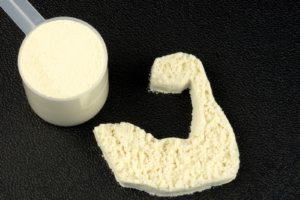Supplement Round Up: Whey vs. Casein
By: Sarah Heckler, MS, RD/LDN, CISSN
Intro
Protein powders are absolutely not necessary in the diet however, this convenience food can be a great option with many muscle building benefits for athletes. For more information on why and how to incorporate a post workout smoothie into your routine click here.
Not all protein powders are created equal. No fear, The Endurance Edge is here! We are here to compare and contrast different products on the market so YOU can decide the best option for your lifestyle and goals. Still nee help? Meet with one of our dietitians to determine the best protein powder for you.
Whey Protein
Whey protein originates from cow’s milk and therefore is not a good option for those with a milk allergy. Whey is the liquid that separates from the curd during the process of making cheese. Whey protein is one of the most widely used products due to it’s high protein content, it’s complete amino acid profile and effectiveness and stimulating muscle protein synthesis. There are two main types of whey protein powders; isolate and concentrate. Whey isolate is the quickest to absorb, due the removal of fat and lactose, and has a higher muscle protein synthesis (MPS) stimulation than soy and casein. Whey concentrate also has a higher MPS stimulation than soy and casein however there are some nutritional differences between isolate and concentrate.
Per 100 calorie servings:
- Whey Isolate
- 23 g protein
- 1 g carbs (lactose)
- 0 g fat
- Whey Concentrate
- 18 g protein
- 3.5 g carbs (lactose)
- 1.5 g fat
Due to the extra processing and purification whey isolate tends to be more expensive than whey concentrate.
Casein
Another milk protein, Casein, is known for being a slower absorbed protein and therefore, may aid in satiety. Casein is also a complete protein, like whey, however it does not stimulate MPS as much as whey. Casein is more effective at inhibiting protein breakdown. Casein products tend to me slightly more expensive than whey isolate. Casein protein powders or a protein blend may be good options for those looking for meal replacements. These aid in keeping you fuller longer due to the ingredients, which are more slowly digested. Casein is great for individuals who are trying to maintain their muscle mass and stay full.
When choosing the right protein powder for you make sure to look for third party certifications such as NSF, Informed Choice, BSCG or USP. As usual, use at your own risk or under the care of a knowledgeable healthcare provider, like our awesome dietitians!
Special thanks to one of our amazing interns, Brittany Wuis, who is a student at N.C. State, a Certified Personal Trainer and NPC Figure Competitor. She is pretty much awesome and fits right in with the rest of our badass team.




